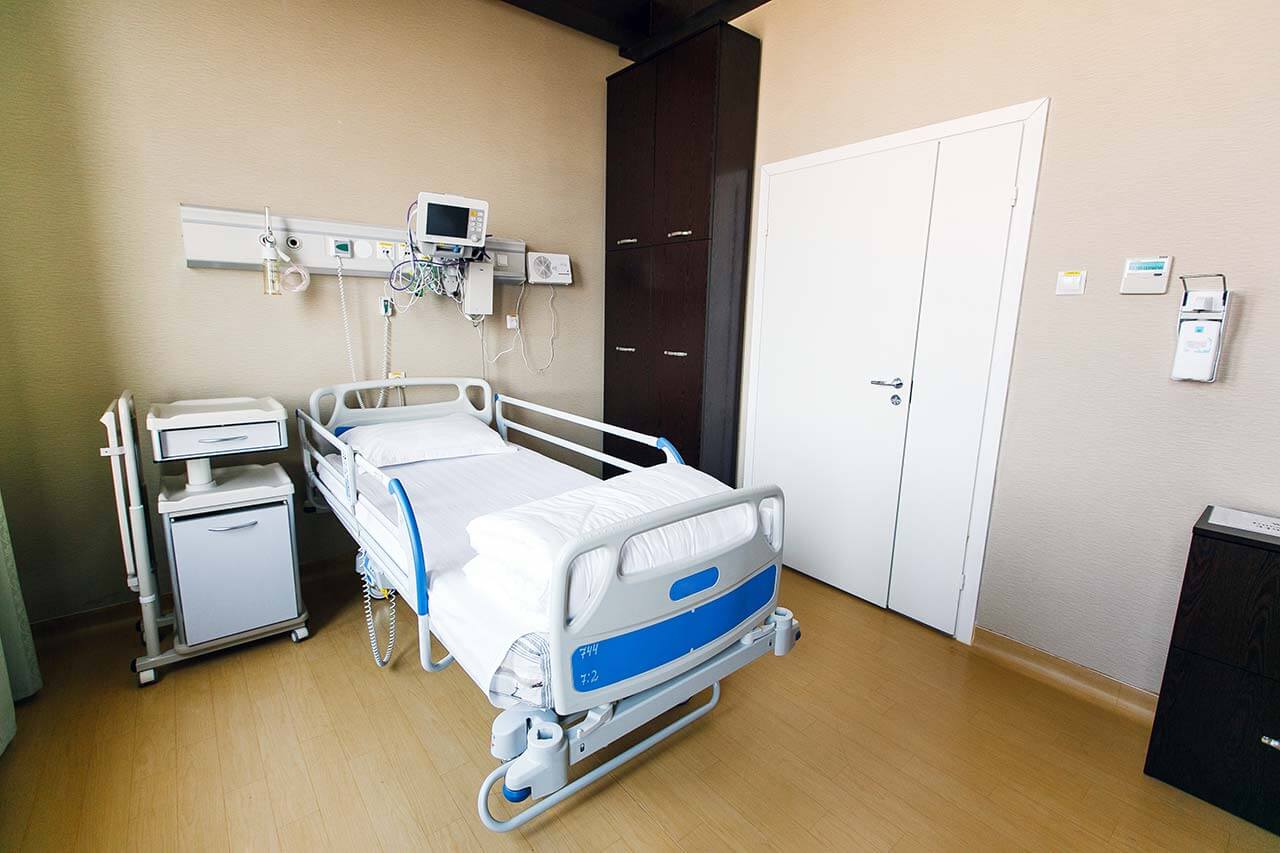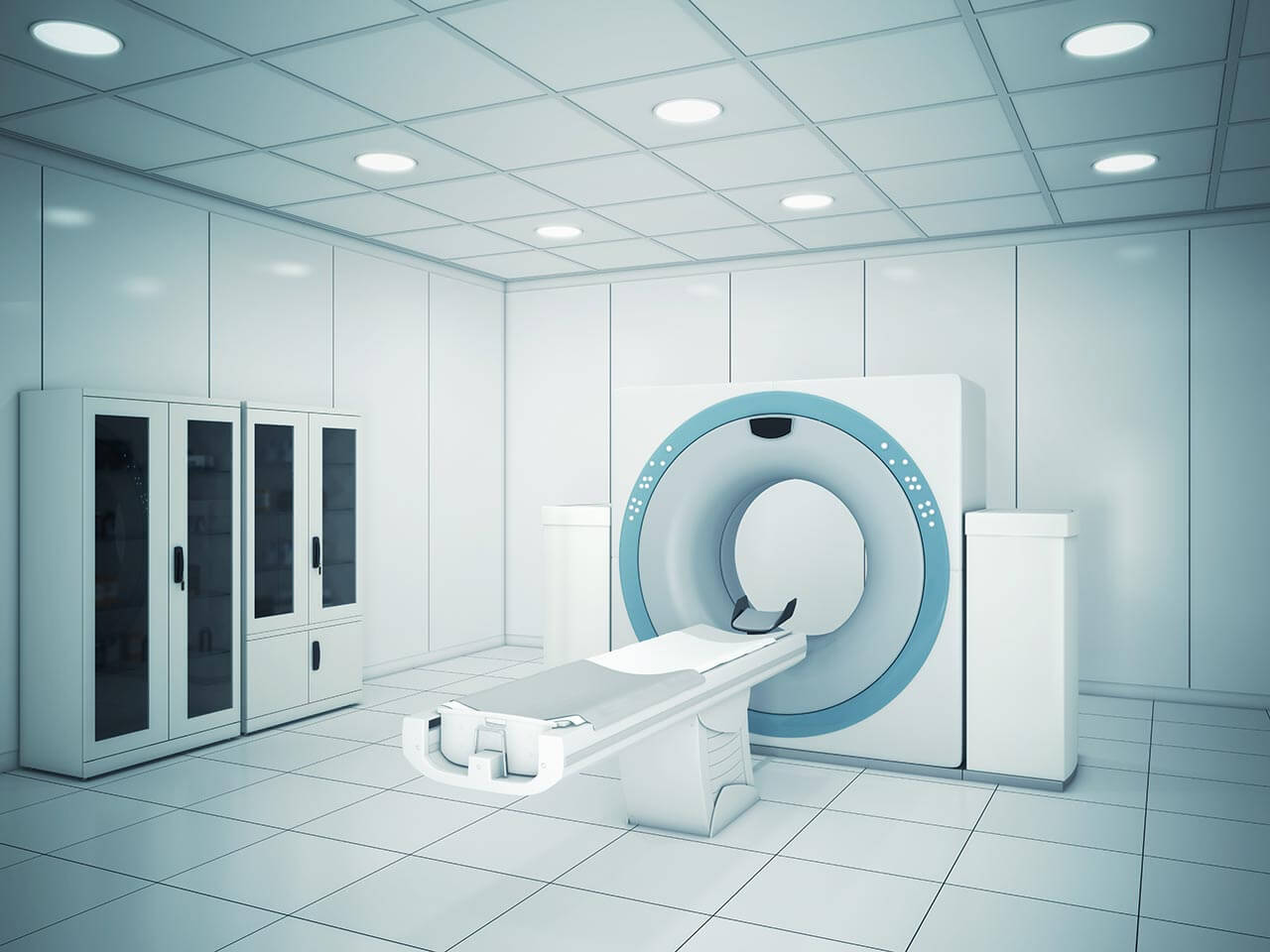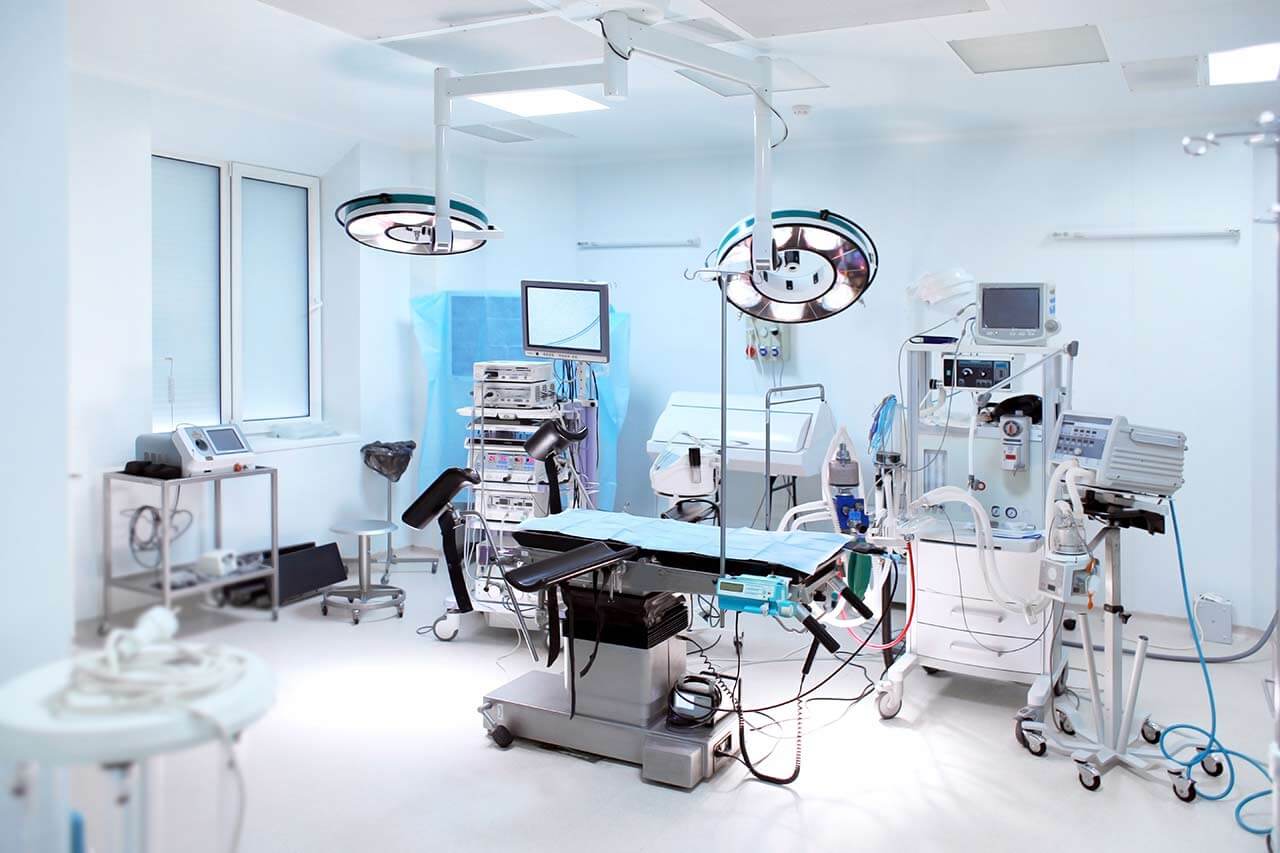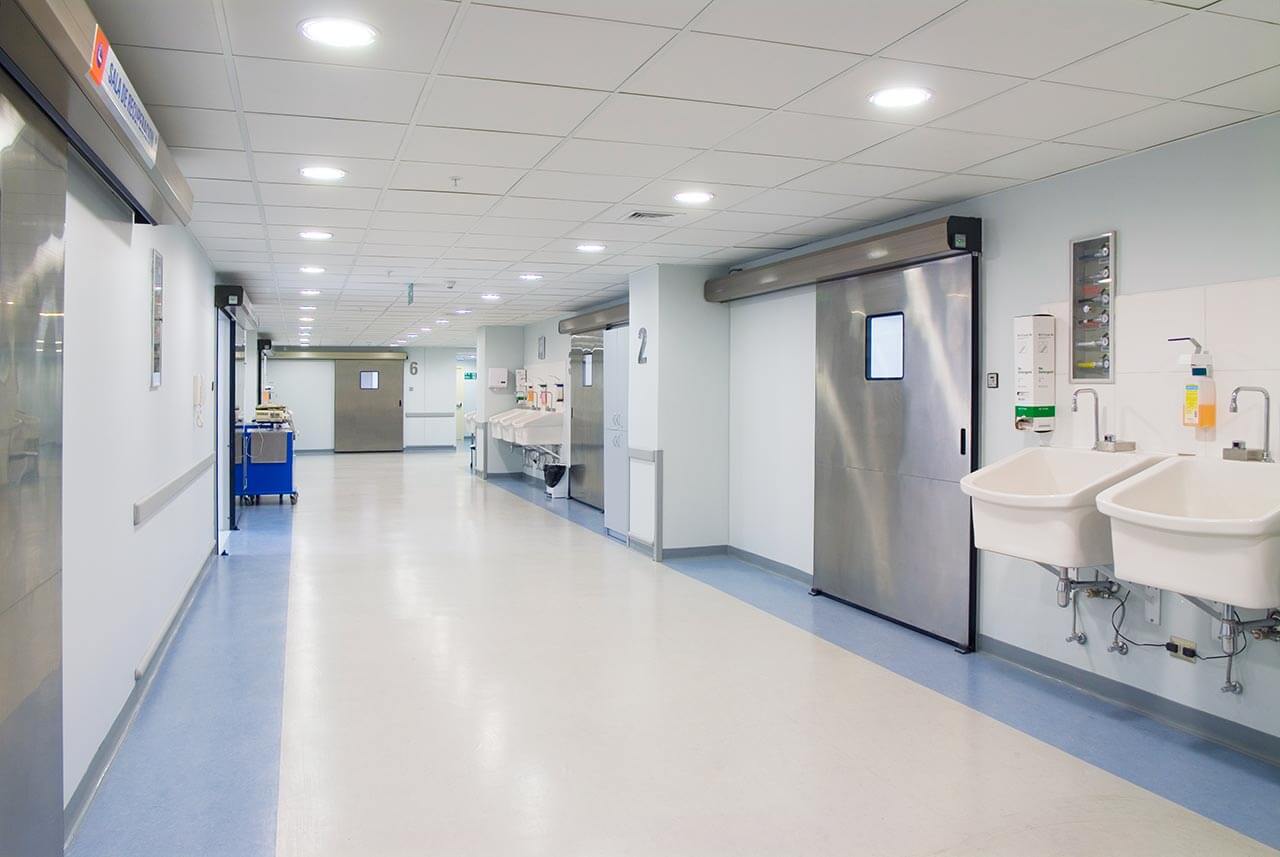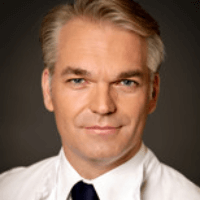
The program includes:
- Initial presentation in the clinic
- clinical history taking
- physical examination
- review of medical records
- laboratory tests:
- complete blood count
- general urine analysis
- biochemical analysis of blood
- TSH-basal, fT3, fT4
- indicators of inflammation (CRP, ESR)
- indicators blood coagulation
- abdominal ultrasound
- CT/MRI abdomen
- preoperative care
- Splenectomy
- symptomatic treatment
- control examinations
- the cost of essential medicines and materials
- nursing services
- nutrition recommendations
- full hospital accommodation
- explanation of future recommendations
Required documents
- Medical records
- Complete blood count (if available)
Service
You may also book:
 BookingHealth Price from:
BookingHealth Price from:
About the department
According to the reputable Focus magazine, the Department of General, Abdominal, Endocrine, Colorectal, Hepatobiliary, Bariatric Surgery, Adult and Pediatric Thoracic Surgery at the Alfried Krupp Hospital in Essen-Ruettenscheid ranks among the best German medical facilities!
The department's surgeons provide diagnostics and surgical treatment of the full range of diseases of the gastrointestinal tract, pancreas, liver, gallbladder and bile ducts, rectum and anus. The department's therapeutic offer is complemented by surgical interventions on the thyroid gland, parathyroid glands and adrenal glands, hernia repair surgery, as well as interventions on the lungs, pleural cavity, mediastinum and thoracic wall in adults and children. In addition, the department's surgeons specialize in bariatric surgery for patients suffering from morbid obesity. Since 2015, the department has been performing robot-assisted interventions using the innovative da Vinci Xi system. More and more operations in the department are performed using sparing minimally invasive techniques that eliminate large skin and soft tissue incisions for surgical access. The department is certified as a Centre of Excellence for Minimally Invasive Surgery by the German Society for General and Visceral Surgery (DGAV). In addition, the department offers such modern treatment methods as cytoreductive surgery and hyperthermic intraperitoneal chemotherapy (HIPEC) for the treatment of peritoneal cancer and metastases. The department is headed by Prof. Dr. med. Marco Niedergethmann.
The priority focus of the department's specialists is the surgical treatment of benign and malignant gastrointestinal diseases. The surgeons have excellent qualifications in surgery for gastroesophageal reflux disease, bile duct diseases, diverticulitis, inflammatory bowel disease (Crohn's disease and ulcerative colitis). Such patients are treated in close cooperation with gastroenterologists and other experts in related medical fields. The first-line treatment is usually conservative therapy, but at the advanced stages, surgery is often the only effective treatment method. No less attention is paid to surgery for the resection of stomach, esophageal, pancreatic, liver, colon and rectal malignancies. In addition to classic open surgery and minimally invasive interventions, the department successfully uses cytoreductive surgery and hyperthermic intraperitoneal chemotherapy (HIPEC). These progressive therapies are available only in the leading medical centers in the world. They are highly effective in patients with peritoneal cancer and abdominal metastases. The decision on the advisability of the above-mentioned types of therapy is made with the participation of oncologists, radiologists, radiation therapists and other doctors. The essence of cytoreductive interventions is the maximum possible removal of the tumor and metastases prior to starting the course of pharmacotherapy. Hyperthermic intraperitoneal chemotherapy (HIPEC) involves direct flushing of the peritoneum with a chemotherapy agent heated to very high temperatures – 42 °C and above. The therapeutic procedure is performed after surgical resection of visible malignant neoplasms.
Since 2015, the department has been using the da Vinci Xi surgical system, which opens up new possibilities in the treatment of abdominal diseases. It is noteworthy that the department's surgeons were among the pioneers in Germany in the use of robot-assisted surgery in the field of abdominal surgery. Such operations are distinguished by jewelry precision and minimal invasiveness, which greatly facilitates the process of postoperative recovery and practically eliminates classical surgical risks. Although the surgical procedure is actually performed by a robot, the device is operated by a surgeon who has completed a special training course in the field of robot-assisted surgery and has the appropriate professional skills. The therapeutic offer in this field includes colon resection for diverticulitis and oncological diseases, as well as rectal surgery for cancer and pelvic organ prolapse.
The surgical treatment of endocrine diseases also occupies a particularly important place in the department's clinical practice. The department's endocrine surgeons most often deal with thyroid, parathyroid and adrenal surgery. To make an accurate diagnosis and determine the course of follow-up treatment, doctors do a physical examination, take a blood test for determining hormone levels, electrolytes and tumor markers, carry out ultrasound scanning and scintigraphy. Indications for surgery are usually thyroid cancer, thyroid enlargement (goiter), hyperthyroidism (thyroid hyperfunction), thyroid adenomas and cysts, and inflammatory processes in the thyroid gland. To exclude damage to vital anatomical structures (for example, vocal cords), modern intraoperative neuromonitoring systems are used. Minimally invasive surgical techniques are preferred whenever possible.
Hepatobiliary surgery is another focus of the department's medical team. The department successfully performs surgery on the liver, pancreas, gallbladder and biliary tract for benign and malignant neoplasms, liver metastases, bile duct stenosis and obstruction, etc. Minimally invasive treatment options are considered first, and only if doctors are confident that they will not provide a satisfactory result, open surgery becomes an option of choice.
The department has the status of a certified Reference Center for Colorectal Surgery (certificate of the German Society for General and Visceral Surgery, DGAV). The doctors have special expertise in the treatment of anal abscesses, fistulas and fissures, hemorrhoids, rectal prolapse, constipation and fecal incontinence. If, based on the results of preliminary examinations, conservative therapy is prescribed to the patient, it is carried out on an outpatient basis. If surgery is required, minimally invasive surgery is always preferred.
The team of thoracic surgeons of the medical facility provides high quality medical care to patients suffering from lung, pleural and mediastinal diseases, as well as thoracic wall diseases and abnormalities. The specialists of the medical facility admit both adults and children for treatment. In this field, the focus is on the surgical treatment of lung cancer. In 2020, the department received a certificate from the German Cancer Society (DKG) for the excellent success rates in cancer treatment and high standards of medical care. The department's thoracic surgeons have a perfect command of the modern techniques of video-assisted thoracoscopic surgery, thanks to which patients undergo treatment of complex surgical diseases of the respiratory system without thoracotomy. About 90% of operations in this spectrum are performed in the department using video-assisted thoracoscopic surgery. Preserving the integrity of the chest allows the patient to recover as soon as possible and avoid severe pain syndrome. At the same time, the high effectiveness of such interventions has been proven by many clinical trials.
The department's surgeons have long experience in the surgical treatment of morbid obesity. More than 100 such interventions are performed here every year. Today, excess weight is a serious problem for many people, and this problem is not only aesthetic in nature. Obesity is associated with a high risk of developing arterial hypertension, cardiovascular diseases, obstructive sleep apnea, diabetes mellitus, infertility, male sexual dysfunction, spinal and joint diseases. At the initial stages of obesity, the department's specialists use conservative treatment regimens with individually selected physical activity, diet therapy and behavioral therapy, but if the body mass index exceeds 40 kg/m2, the patient usually requires a bariatric intervention. The range of the department's surgical services includes endoscopic interventions for the implantation of an intragastric balloon, gastric bypass (Roux-en-Y), gastric banding, sleeve gastrectomy, as well as follow-up plastic surgery to remove saggy skin (in cooperation with plastic surgeons). Bariatric surgery can quickly reduce body weight, but the intervention must be followed by diet and regular physical activity in order to consolidate the result. As a rule, all of the above-mentioned bariatric surgical procedures are performed using minimally invasive techniques, which is an undeniable advantage for the patient. The optimal type of operation is prescribed by the attending physician after a thoughtful study of the patient's medical history and comprehensive diagnostics.
The department's main clinical focuses include:
- General and abdominal surgery
- Surgery for benign gastrointestinal diseases (gastroesophageal reflux disease, bile duct diseases, diverticulitis, ulcerative colitis and Crohn's disease)
- Surgery for malignant gastrointestinal diseases (stomach, esophageal, pancreatic, liver, colorectal cancers, peritoneal metastases)
- Surgery for inguinal, umbilical and incisional hernias
- Endocrine surgery
- Surgery for thyroid diseases (thyroid cancer, hyperthyroidism, thyroid adenomas and cysts)
- Surgery for parathyroid diseases (benign and malignant neoplasms, hyperparathyroidism)
- Surgery for adrenal diseases (benign and malignant neoplasms, Cushing's syndrome)
- Colorectal surgery
- Surgery for diseases of the rectum, anus and colon (constipation, anal fissures, fistulas, abscesses, hemorrhoids, rectal prolapse, fecal incontinence, rectal cancer, anal cancer)
- Hepatobiliary surgery
- Surgery for liver diseases (liver cancer, liver metastases, benign liver neoplasms)
- Surgery for gallbladder and bile duct diseases (gallstones, bile duct stenosis and obstruction, gallbladder inflammatory lesions)
- Surgery for pancreatic diseases (pancreatic cancer, pancreatic cysts, pancreatitis)
- Thoracic surgery
- Surgery for lung, pleural and mediastinal diseases, as well as thoracic wall diseases and abnormalities in adults and children
- Video-assisted thoracoscopic surgery
- Atypical parenchymal resection, lung segment resection, lobectomy, pneumonectomy
- Lung volume reduction for pulmonary emphysema and resection for bullous emphysema
- Removal of mediastinal lymph nodes
- Resection of mediastinal tumors (for example, neuromas, pericardial cysts, bronchogenic cysts)
- Thymus neoplasm resection (thymoma)
- Pleurectomy (removal of part of the pleura)
- Thoracic sympathectomy for hyperhidrosis
- Pleural cavity sanitation for pleural empyema
- Lung decortication
- Hybrid thoracic interventions (combination of video-assisted thoracoscopic surgery and classic open surgical techniques)
- Bronchial resection during tumor removal surgery
- Extended interventions with the resection of the thoracic wall and vertebral body followed by plastic repair
- Major resection surgery with the use of a heart-lung machine
- Extended pleuropneumonectomy with the resection of the pericardium and diaphragm for the treatment of pleural mesothelioma
- Sternotomy with the removal of mediastinal tumors (for example, thymomas, teratomas)
- Lung metastasis resection
- Tracheal resection for stenosis or tumors, as well as for tracheoesophageal fistulas
- Video-assisted thoracoscopic surgery
- Surgery for lung, pleural and mediastinal diseases, as well as thoracic wall diseases and abnormalities in adults and children
- Bariatric surgery
- Intragastric balloon placement
- Gastric bypass (Roux-en-Y)
- Sleeve gastroplasty
- Stomach banding
- Da Vinci Xi robot-assisted surgery
- Colon resection for diverticulitis and cancers
- Rectal interventions for rectal cancer and pelvic organ prolapse
- Other surgical options
Curriculum vitae
Higher Education and Professional Career
- Study of Medicine at the Universities of Marburg, Heidelberg, Mannheim and San Francisco.
- 1998 Doctoral thesis defense and admission to medical practice.
- 1998 - 2012 Preparation for board certification in General, Vascular and Abdominal Surgery, Department of Surgery at the University Hospital Mannheim.
- 2006 Habilitation.
- 2008 Extraordinary Professor for Surgery at the Ruprecht Karl University of Heidelberg.
- 2010 Managing Senior Physician in the Department of Surgery at the University Hospital Mannheim.
- Since 2013 Chief Physician of the Department of General, Abdominal, Endocrine, Colorectal, Hepatobiliary, Bariatric Surgery, Adult and Pediatric Thoracic Surgery at the Alfried Krupp Hospital in Essen-Ruettenscheid.
Clinical and Research Interests
- Surgical treatment of tumors.
- Surgical treatment of colorectal diseases (colon cancer, ulcerative colitis, Crohn's disease).
- Surgical treatment of pancreatic and liver diseases.
- Surgical treatment of esophageal and stomach diseases.
- Minimally invasive surgery.
- Hernia repair surgery.
- Surgical treatment of thyroid diseases.
Certificates
- 2010 Certification in the surgical treatment of pancreatic diseases of the German Society for General and Visceral Surgery (DGAV).
- 2011 Certification in the surgical treatment of liver diseases of the German Society for General and Visceral Surgery (DGAV).
- 2013 Certification in colorectal surgery of the German Society for General and Visceral Surgery (DGAV).
- 2015 Certification in bariatric surgery of the German Society for General and Visceral Surgery (DGAV).
- 2019 Certification in minimally invasive surgery of the German Society for General and Visceral Surgery (DGAV).
Photo of the doctor: (c) Alfried Krupp Krankenhaus
About hospital
The Alfried Krupp Hospital in Essen-Ruettenscheid began its work back in 1870, and large-scale restoration took place here in 1980. The medical facility is an academic hospital of the University of Duisburg-Essen, thanks to which it has access to innovations in the medical field, and also makes its own contribution to the development of modern therapeutic techniques. The hospital has 13 departments and various highly specialized centers, including the Breast Center, Endoprosthetics Center, Lung Cancer Center, Trauma Center and others. The hospital has 575 beds for patient hospitalization. The hospital also offers outpatient medical care. Every year, the hospital's team of doctors admits over 80,000 patients for diagnostics and treatment. For many years, the medical facility has held a leading position in the German medical arena, and is also widely known for its high quality standards in many other countries of the world. The hospital can be proud of its successful experience in providing medical care to foreign patients.
The priority fields of the hospital's work include the treatment of oncological, hematological, gastroenterological, gynecological, urological, neurological, orthopedic and other diseases. The high quality standards of medical care are facilitated by the constant updating of medical equipment and advanced training courses for medical personnel. The hospital widely applies modern methods of conservative treatment, progressive laparoscopic surgical techniques, as well as innovative robotic surgery using the da Vinci Xi system.
The medical facility has been awarded numerous quality certificates confirming the outstanding clinical work of its specialists. These include, in particular, a certificate of the German Society for General and Visceral Surgery (DGAV) in the field of bariatric surgery, colorectal surgery, pancreatic surgery and minimally invasive surgery, an endoCert certificate in the field of joint replacement surgery, a certificate of the German Cardiac Society (DGK) in the field of emergency cardiac care, a certificate of the German Cancer Society (DKG) in the treatment of prostate and lung cancer, a certificate of the German Stroke Society, a certificate of the German Society of Phlebology and others.
Special attention should be paid to the exceptional professionalism of the doctors working at the hospital, who apply all their rich experience and deep knowledge to restore the health of patients. The specialists use an individual approach in their work and carefully think over each treatment regimen so that the patient gets the maximum result, but at the same time the course of therapy is as sparing as possible. The hospital's team of doctors keeps pace with the very latest medical advances and actively implements them into clinical practice for the benefit of patients.
Photo: (с) depositphotos
Accommodation in hospital
Patients rooms
The patients of the Alfried Krupp Hospital in Essen-Ruettenscheid live in comfortable single and double rooms with light colors. For maximum convenience, each patient room has an ensuite bathroom with shower and toilet. The patient room includes a comfortable automatically adjustable bed with an orthopedic mattress, a bedside table, a wardrobe, a table and chairs, as well as a TV and a telephone. Wi-Fi is available upon request.
The hospital also offers enhanced-comfort rooms corresponding to the level of an upscale hotel room. Such patient rooms additionally include upholstered furniture, a safe, a minifridge, and an air conditioner. Daily fresh newspapers, seasonal fruits, coffee and tea are offered to the patient in the room (upon request).
Meals and Menus
The patients of the hospital are offered delicious meals three times a day. Breakfast and dinner are served buffet style with a wide selection of cheese, cold meats, vegetables, fruits, pastries, etc. For lunch, there is a choice of several set menus. The patients living in an enhanced-comfort room benefit from a separate menu for breakfast, lunch and dinner with a large assortment of delicious dishes.
Further details
Standard rooms include:
Religion
The services of representatives of religions are available upon request.
Accompanying person
During an inpatient program, an accompanying person can stay with you in the patient room or in a hotel of your choice.
Hotel
During an outpatient program, you can stay in a hotel of your choice. The managers will help you choose the most suitable options.
